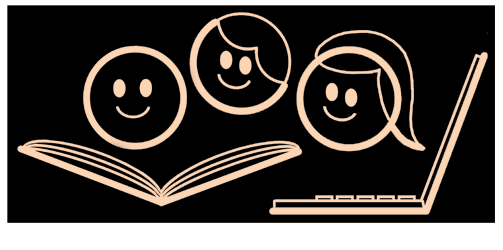Development lead by the Vytautas Magnus University – VMU
Click here to view the course in the VOCAL moodle with guest account (no registration is needed).
Leading tutor and main developer of the course Airina Volungevičienė describes the course content, topics and target group.
The course include topics about innovative learning pedagogies, trends in 21st century, theories of assessment, teaching how to select ICT tools and digital methods in order to develop digital assessment tasks.
The target audience of the course is broad: teachers in different education organisations – VET, HE, adult and secondary education, for all who need to design digital assessment tasks and apply technologies in the teaching and learning process. We introduced this course as a topic in master study program.
The main task in the course is to learn different innovative pedagogies and design assessment strategy for it as well as select ICT tool in order to implement one of strategies online. Teachers can use strategy right away in the class.
Students of the course developed collaborative assignments by opening towards peer reviewing and collaboration in the groups promoting open education. Also practices have been developed using different tools – mind maps or other digital tools to create assignments and they opened them in variety of forms – Google tools, mind maps, concept mapping tools. After they selected technologies that their assignments could be opened for public use. For this reason the whole scenario (with assessments) was opened in VOCAL project Moodle (learning management system).
Vytautas Magnus University has experience in developing open education resources and open education practices, so the approach was applied what was used for several years. In the course open education practices (OEP) was used as many as possible. Creating OEP is a quite challenge, because of new latest privacy regulations on privacy data in Europe.
Through open education practices actually open professional collaboration is happening and OEP is very important activity for professional development of teachers despite of which level of education they are coming from.
One of the course participants Kayako Takagi talks about her experience with the course. She expected with the course implementation to learn more practical knowledge to apply ICT skills into her lessons. The course provided a lots of ways and frameworks of content and evaluation. The course was useful to make her own classes. The knowledge and practical things are very applicable to many kinds of education.
She admits that course was open, but also she felt a little pressure and tension, because it could be reviewed by others, not only friends and teachers, they could look at presentation, materials or outcomes. Sometimes it’s strange to be reviewed by unknown people, especially hard for shy people to open their work to others.
OEP done by Kayako Takagi is available here: http://lms.vocalerasmus.eu/course/view.php?id=12#section-2
Students in the course had to develop digital assessment assignment online with the selected ICT tools. All OEP is uploaded at VOCAL portal: http://lms.vocalerasmus.eu/course/view.php?id=12
The course participant Gabija Stanaitytė also shares her opinion about the course. She chosen to participate in the course, because she wanted to be aware of development of technologies and newest educational platforms as well as possibilities to study online.
The most useful for her in the course was accessibility and openness. She seeks the ways to use her knowledge and the course helped her to use it. The course fosters her own personal learning too. Also there was possibility to share knowledge with other students, teachers and professors, it created community platform.
Open education is becoming one of most important things in education area regarding digital tools. One of the main pros of the course was accessibility – you can access material whenever you want. But cons could be the courage what is needed for students to start participate in the course and realize that it is very beneficial for her.
